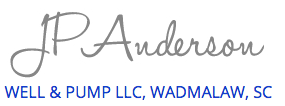Knowing which Water Conditioner is Needed
If you have just recently constructed a new water well for your Lowcountry home, you may feel like it needs to be treated for certain issues.
The most common complaint is a “rotten egg” odor. This is sulphur gas, and it is a usually harmless naturally occurring gas that overwhelms the home with a foul odor. Most complaints are due to showers. It’s hard to feel clean with that pervasive odor. If you have a deep well, we recommend a two-step conditioning method. An aerator that works when the well pump turns on, followed by an automatic regenerating conditioner. This system usually costs around $3000.00, but will work flawlessly for years. For shallow wells, each well is drastically different and must be individually tested for proper sizing and matching of filtering mediums. Costs vary, but can be more expensive than a deep well conditioner.
The next most common complaint is the taste of the water. Salts of various levels exist in almost all coastal wells. Reverse Osmosis is a treatment method that has become more economical and efficient in the last 25 years. If you have a properly cased deep well in the Charleston area, RO may be your best method for removing all of the taste and odor issues. For shallow wells, it is not recommended.
If you notice the above mention of shallow wells, you will see that we have mixed feelings about them. Our Company has drilled thousands of deep and shallow wells, and shallow wells are best described as unpredictable. Conditions of the water may change and be a big disappointment to the customer. We encourage each customer to explore their options…sometimes talking to a neighbor who lives in a home nearby may help make your decision. If one neighbor has a deep well and one has a shallow well, and both like their water, go with the deep well! It will pay for itself many times over in value.
We believe that shallow wells are best used for irrigation use, except in rare cases such as Edisto Island or a few places on Wadmalaw Island.
